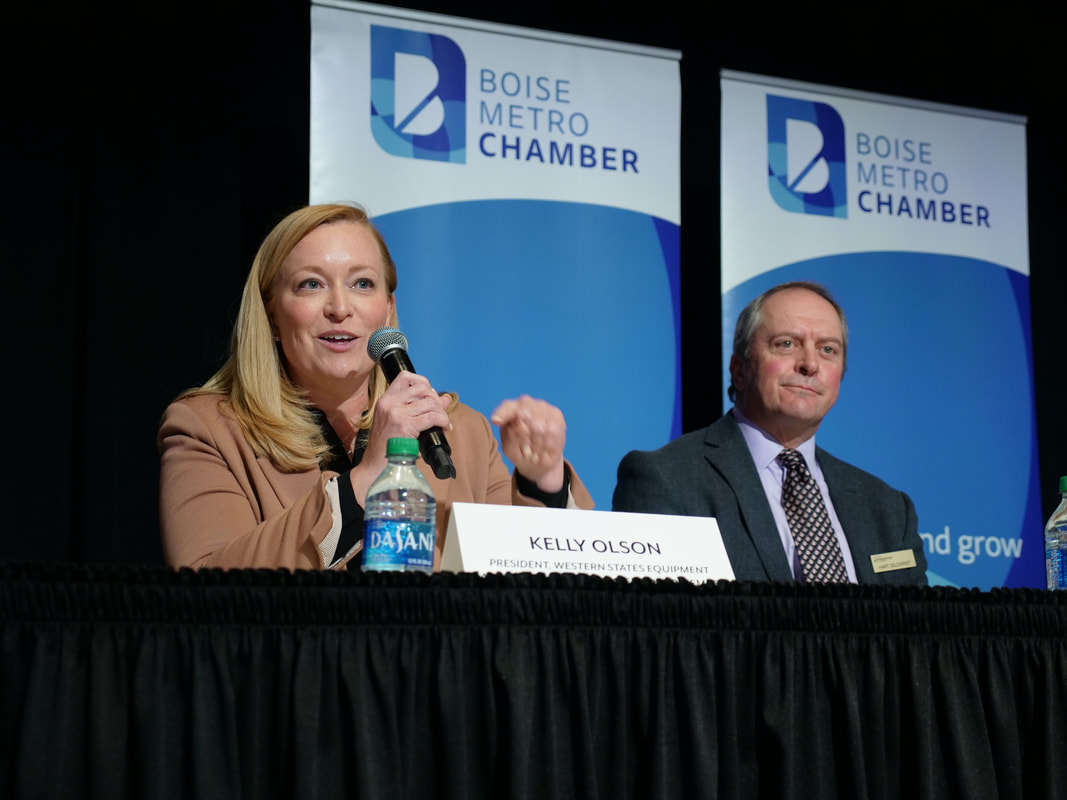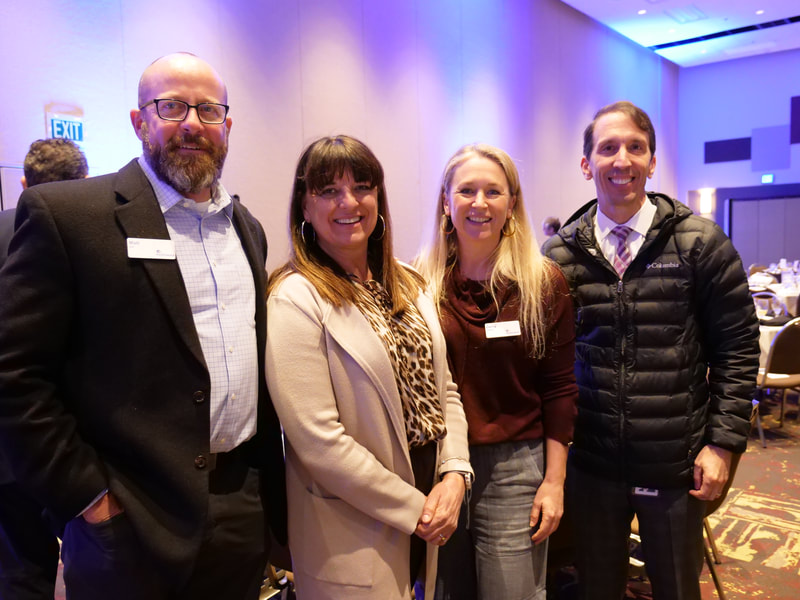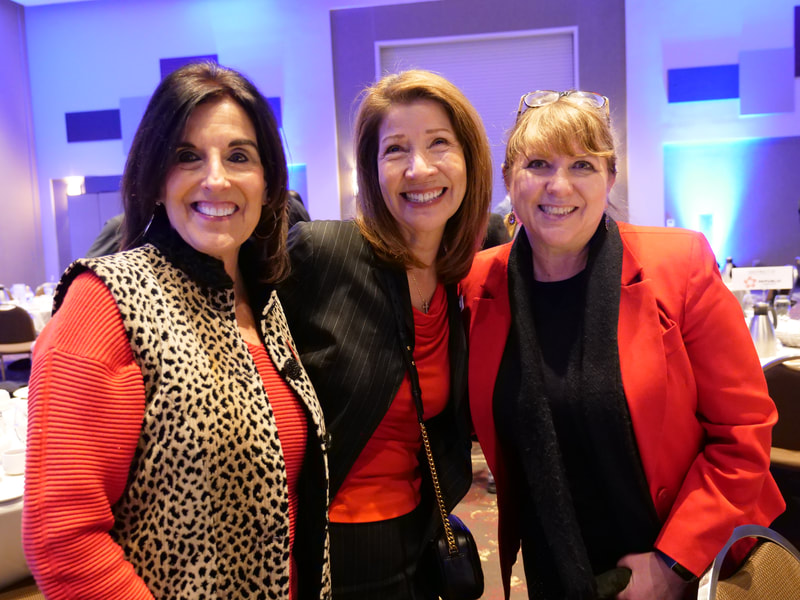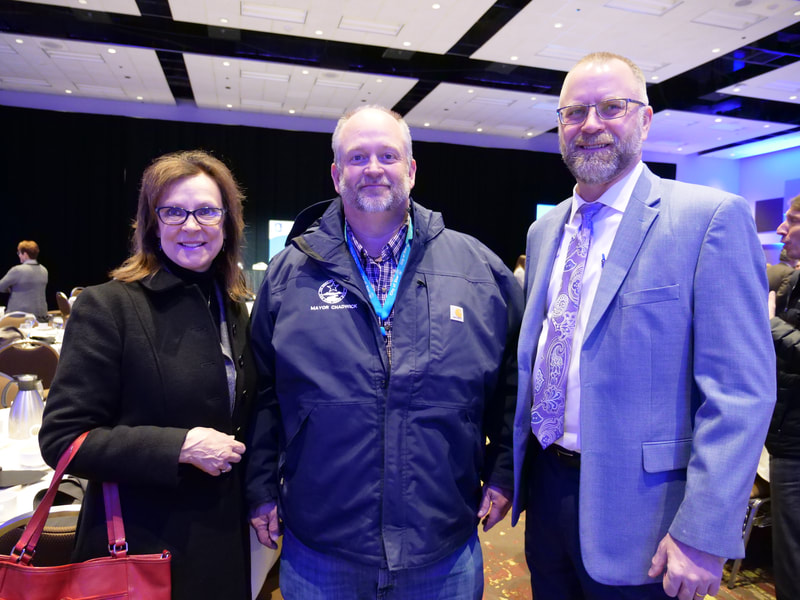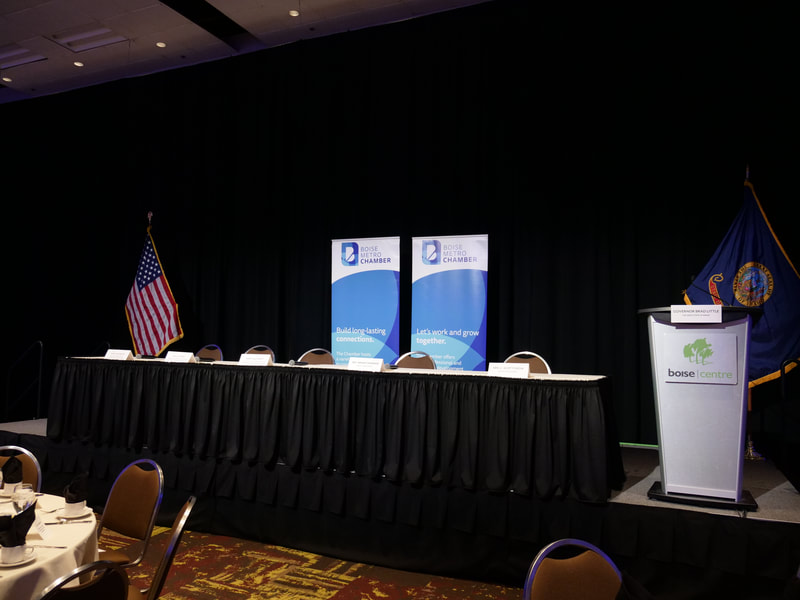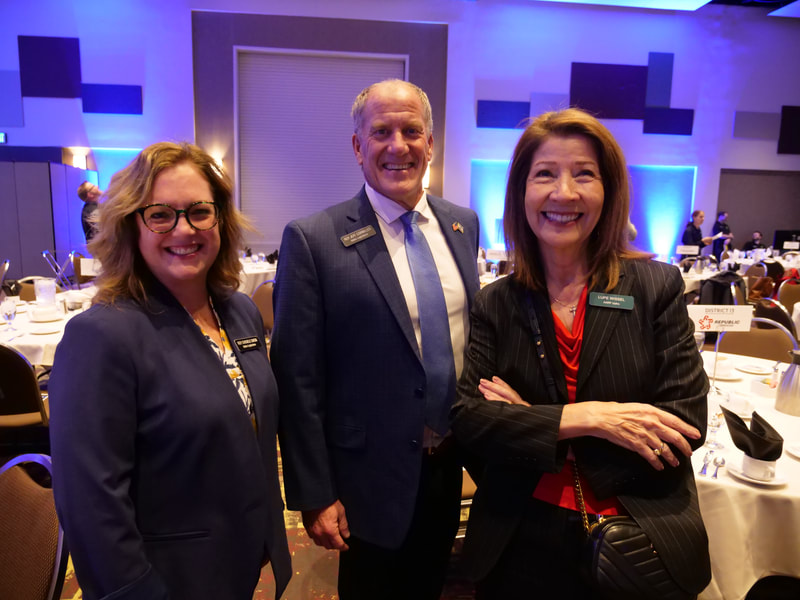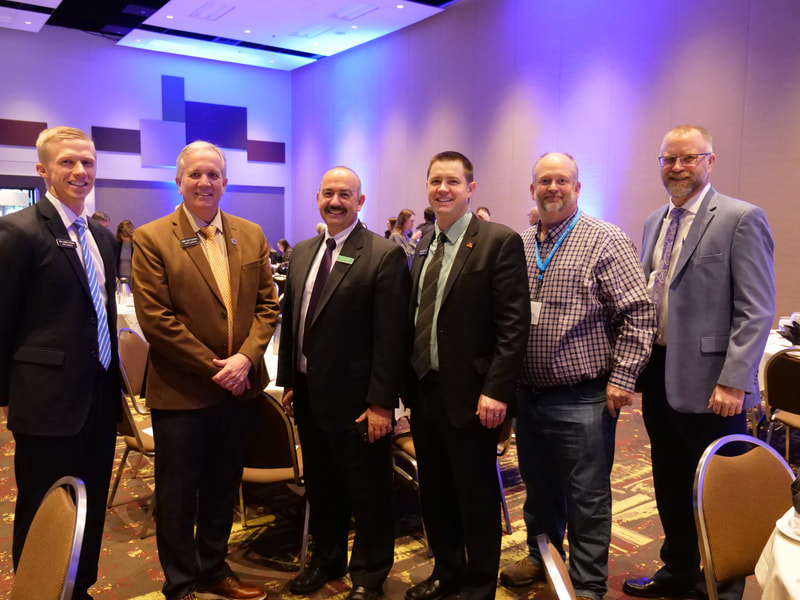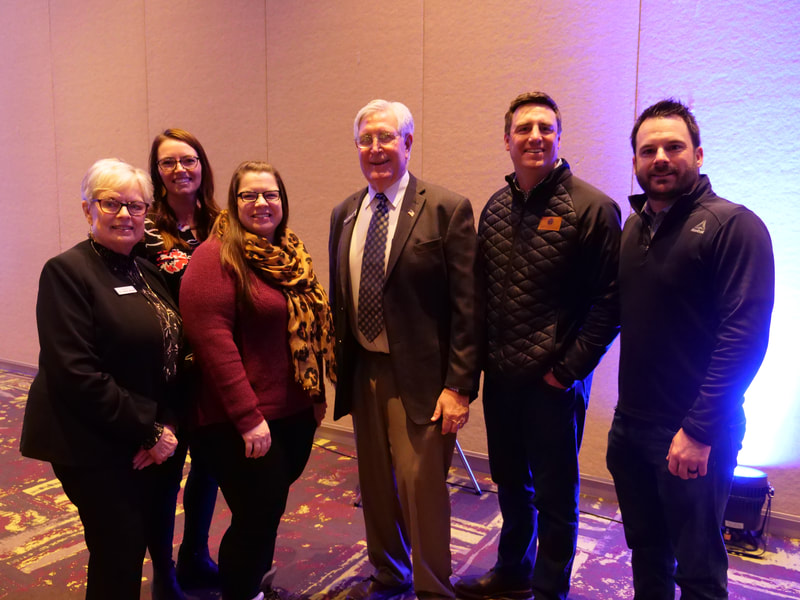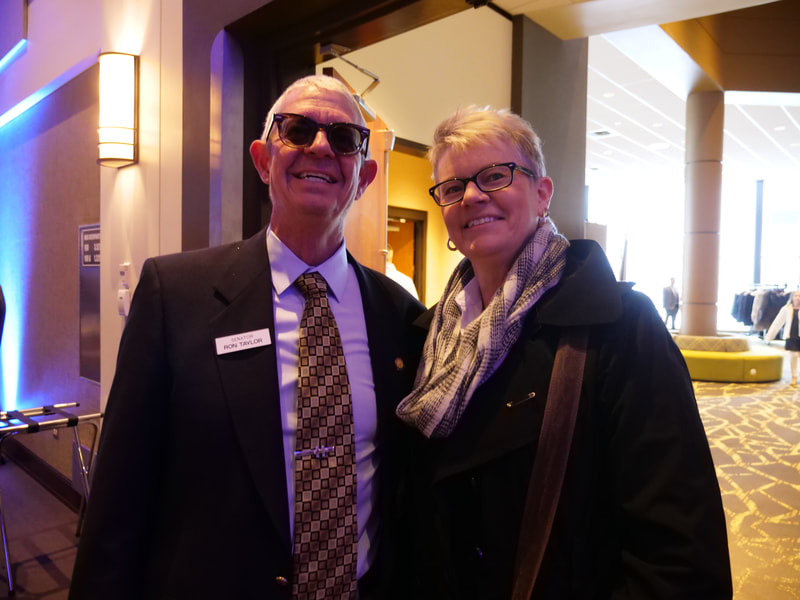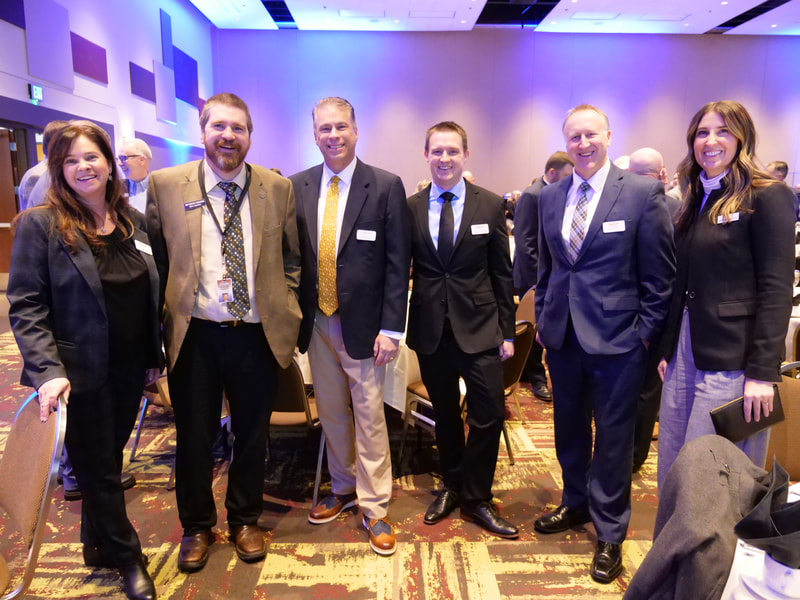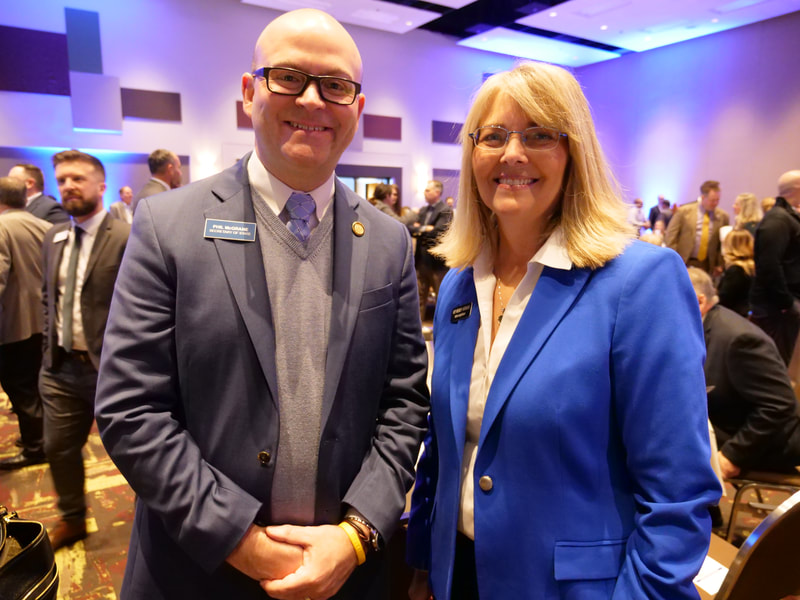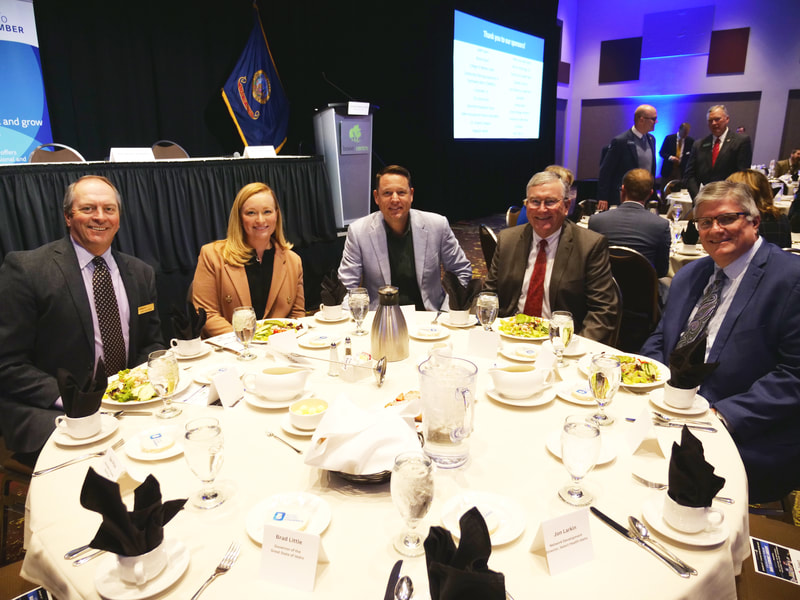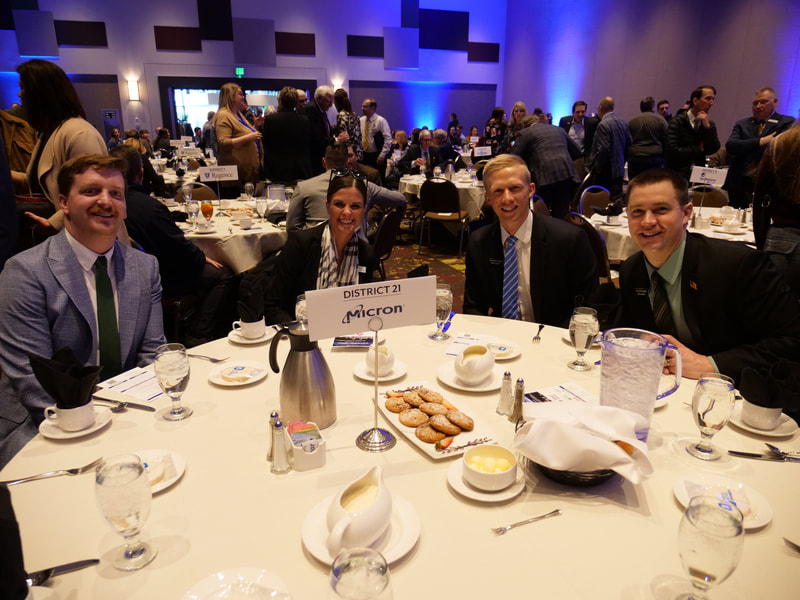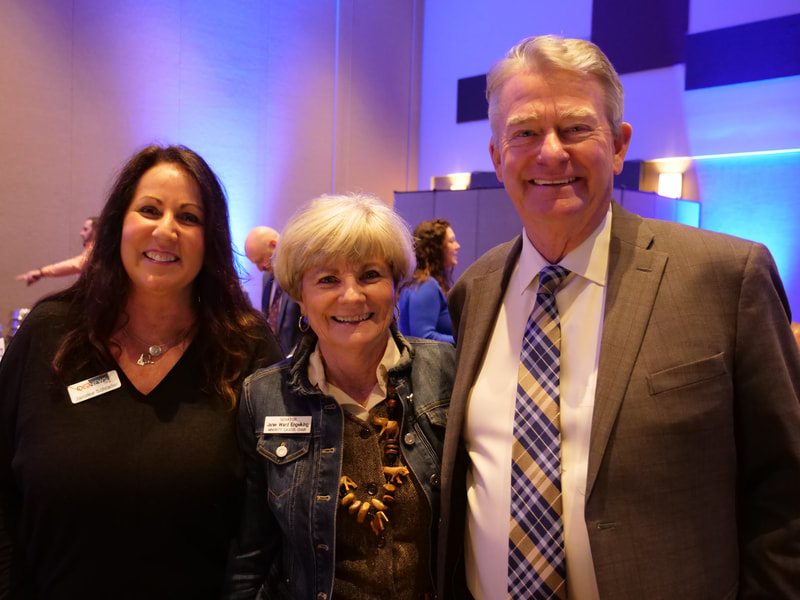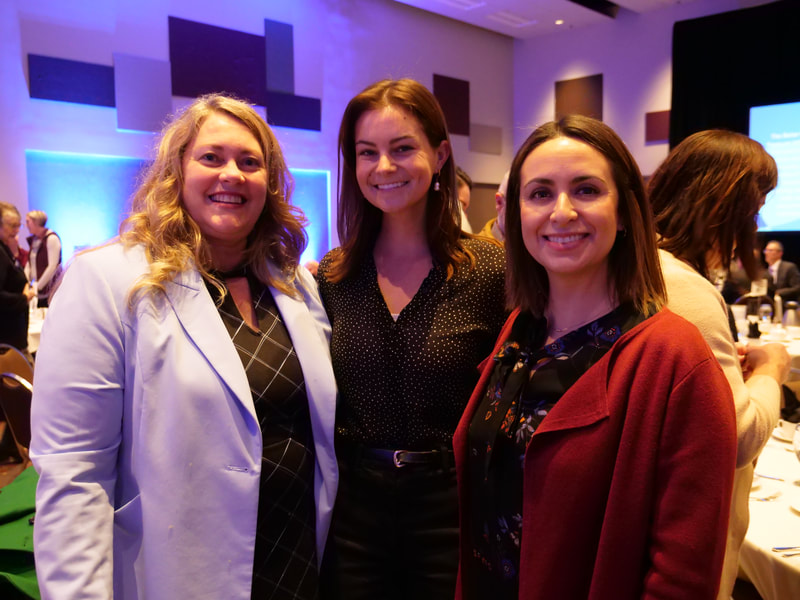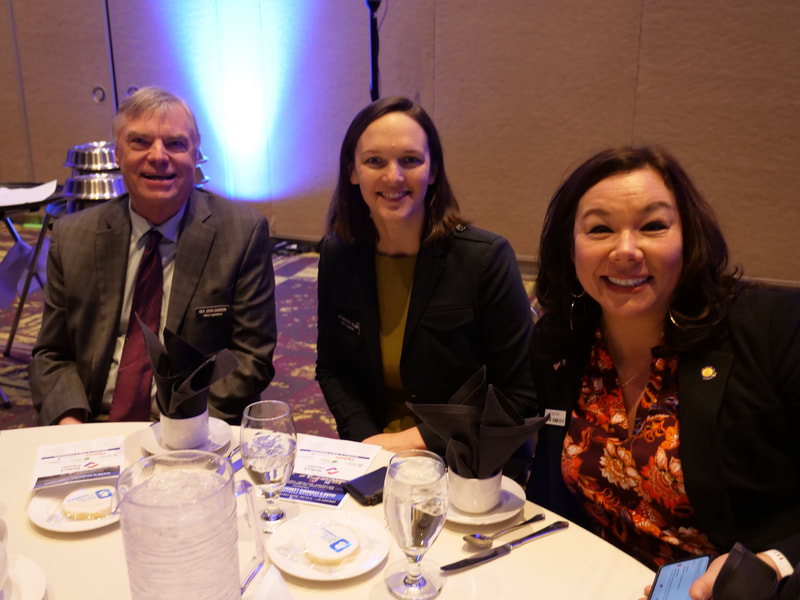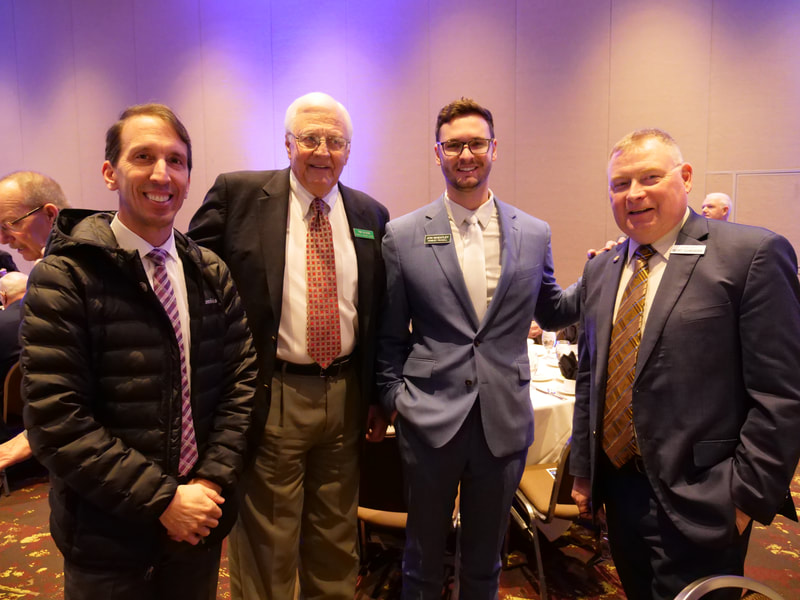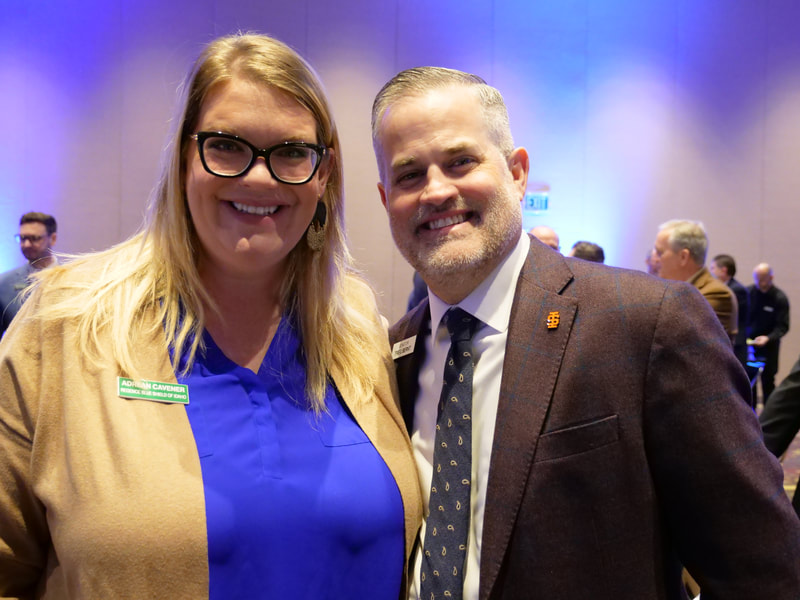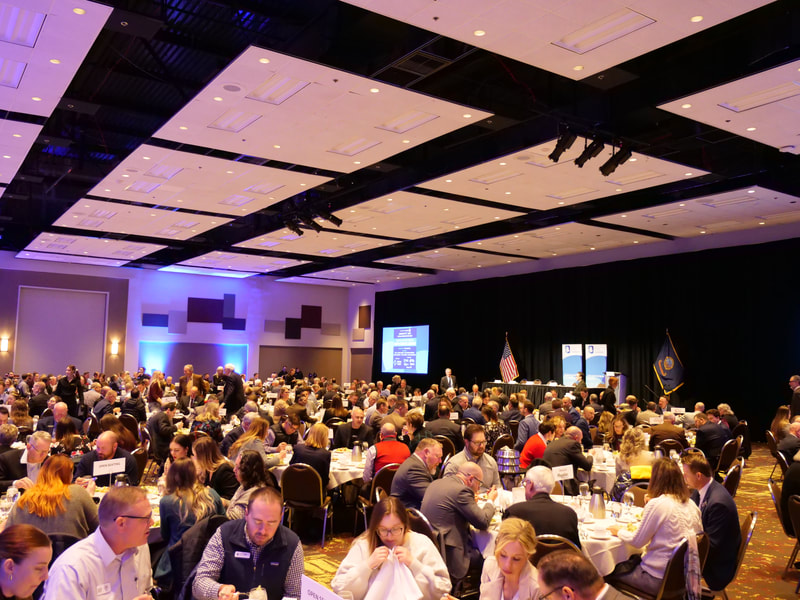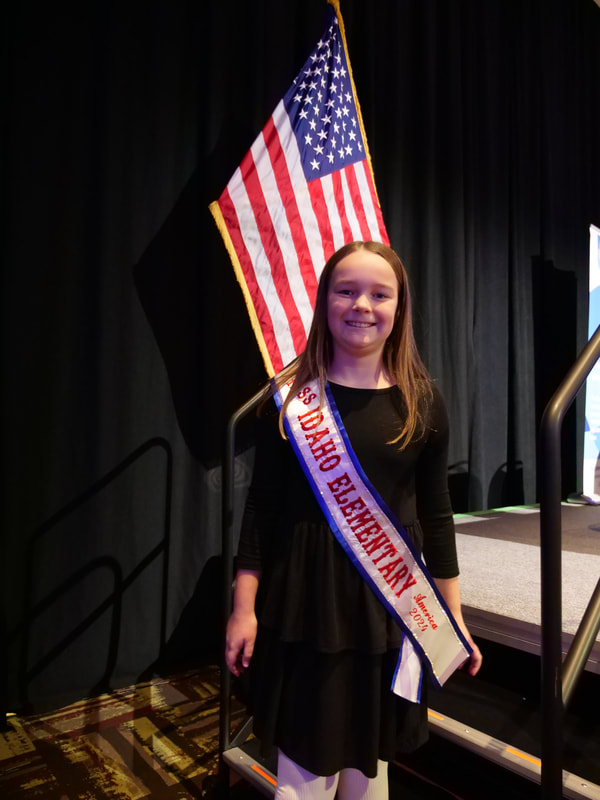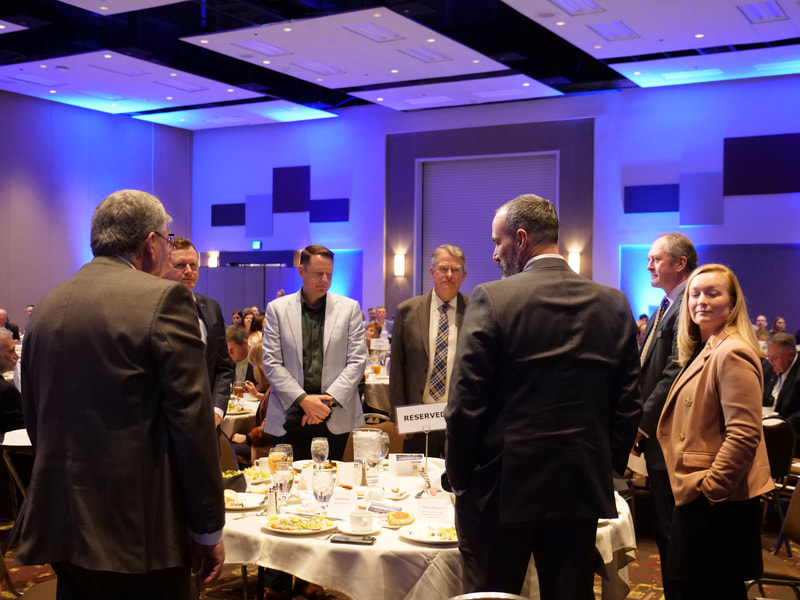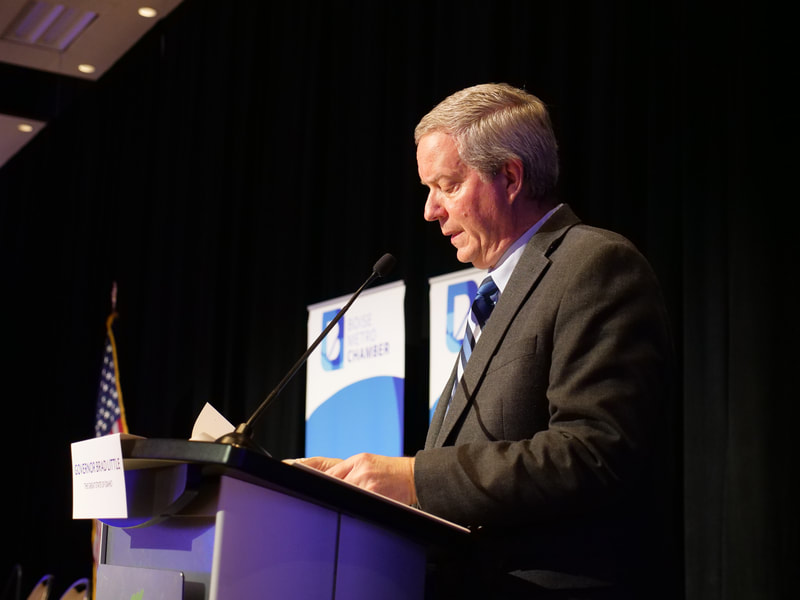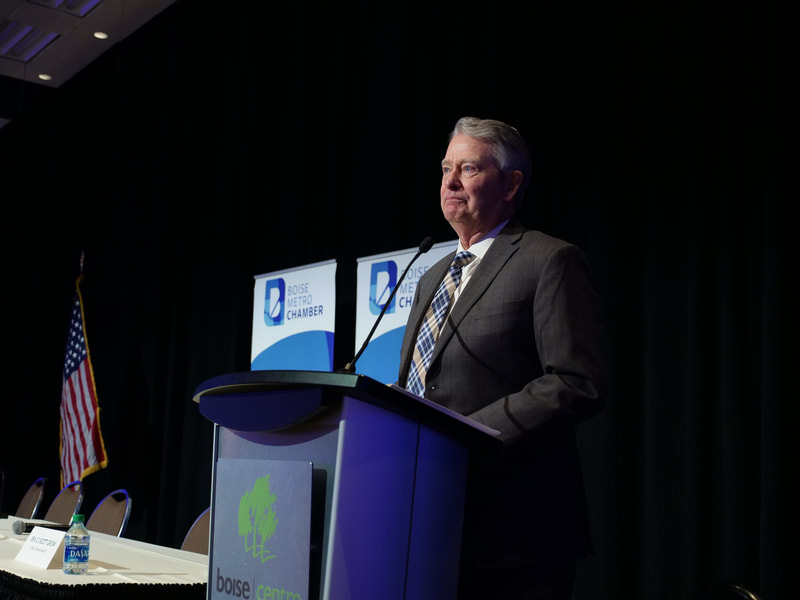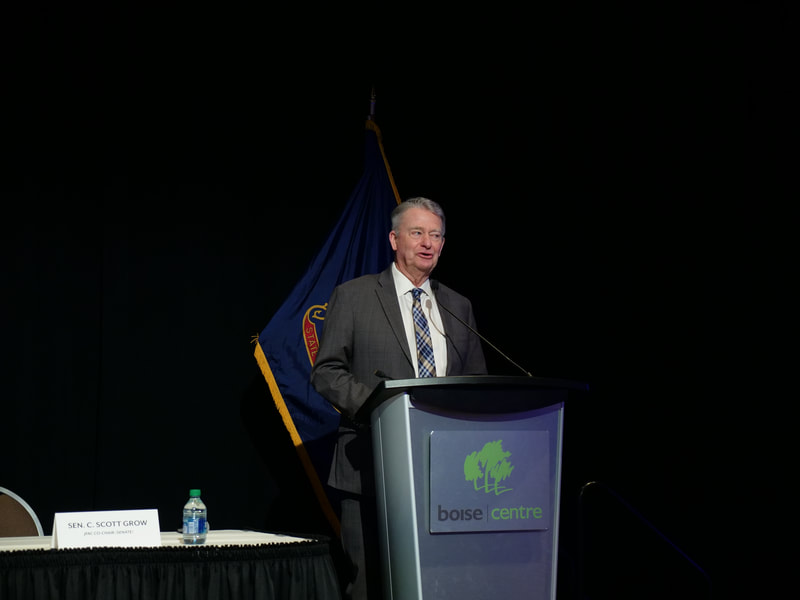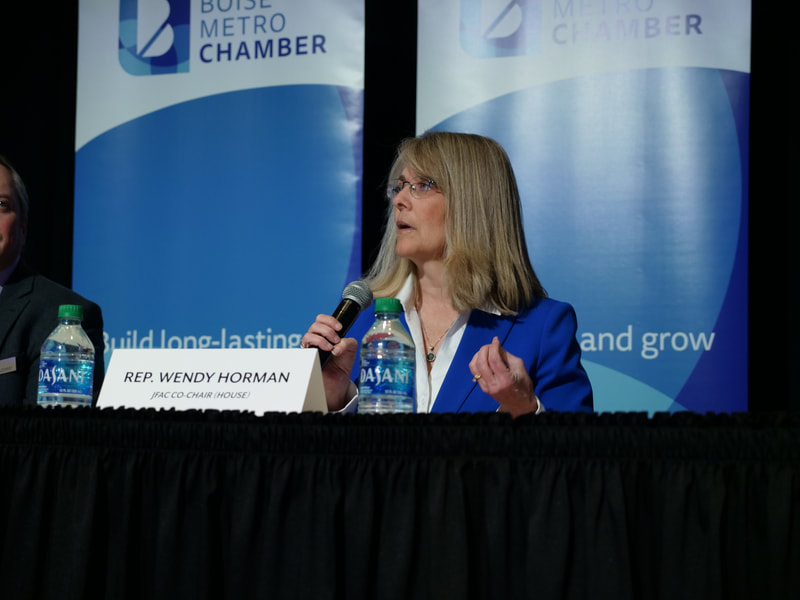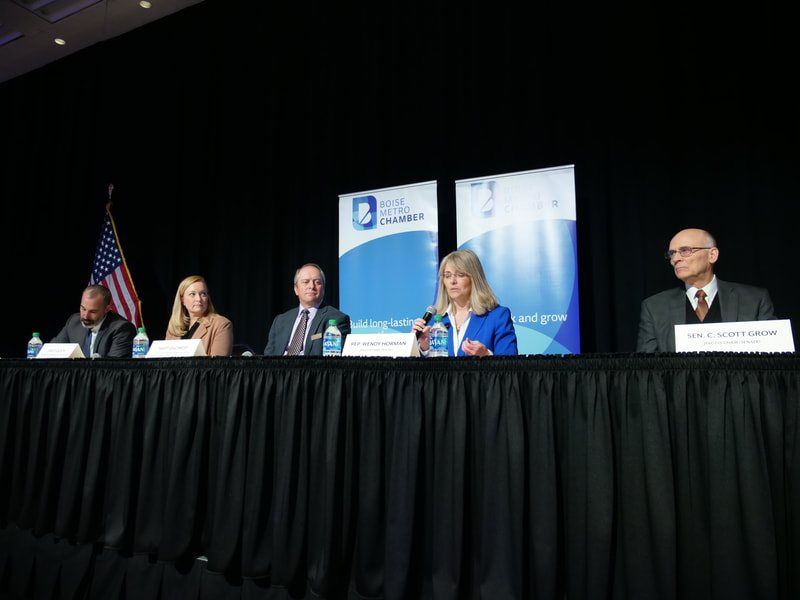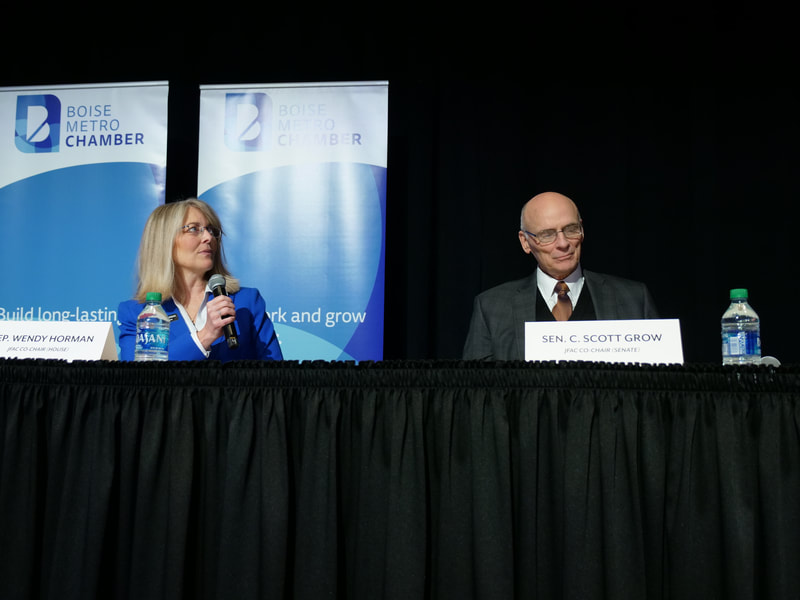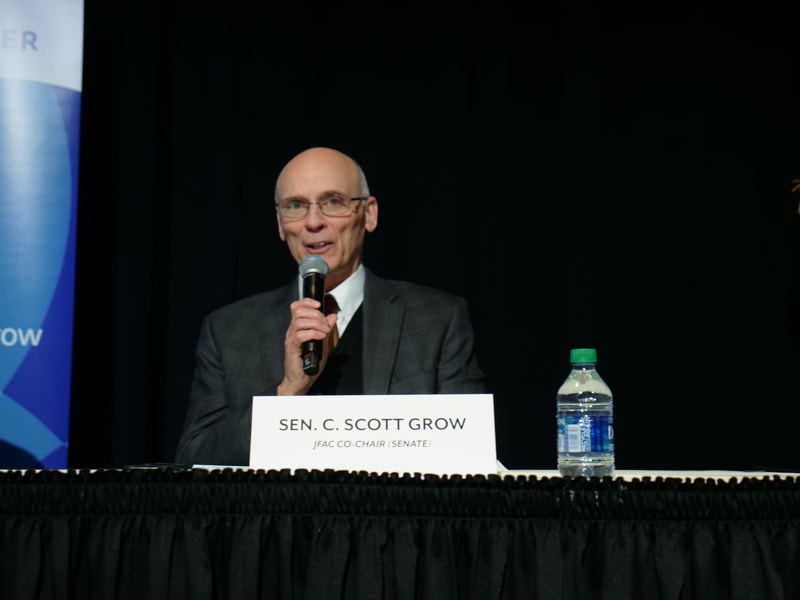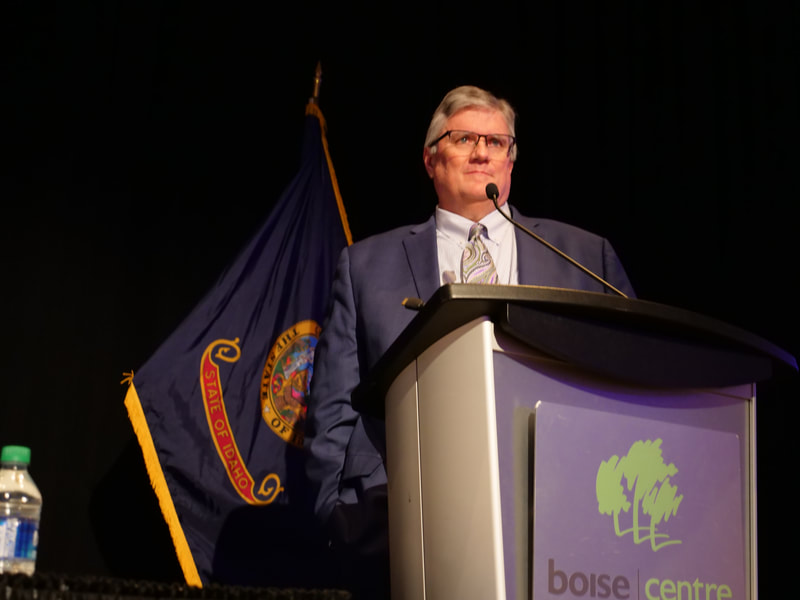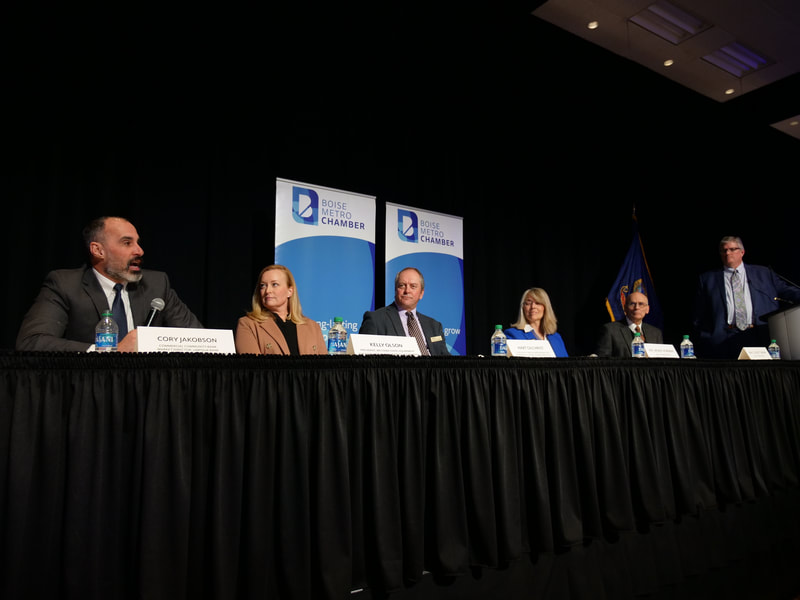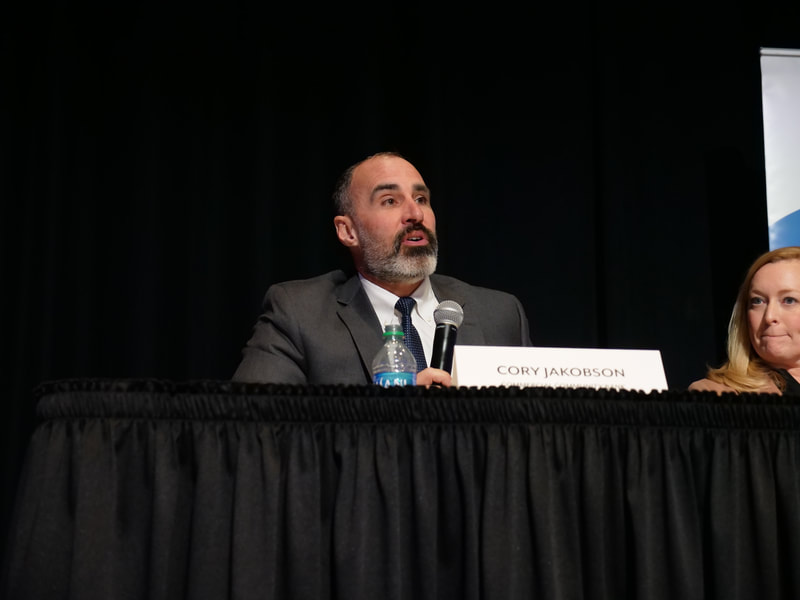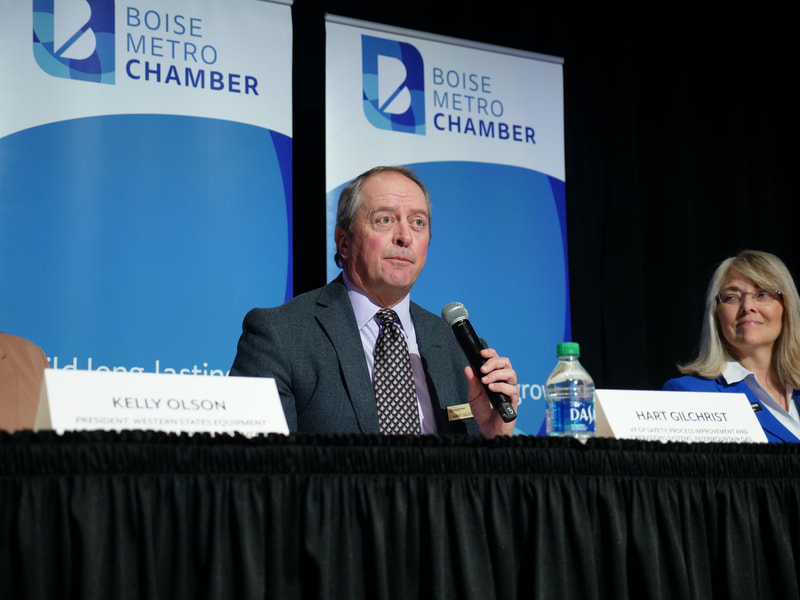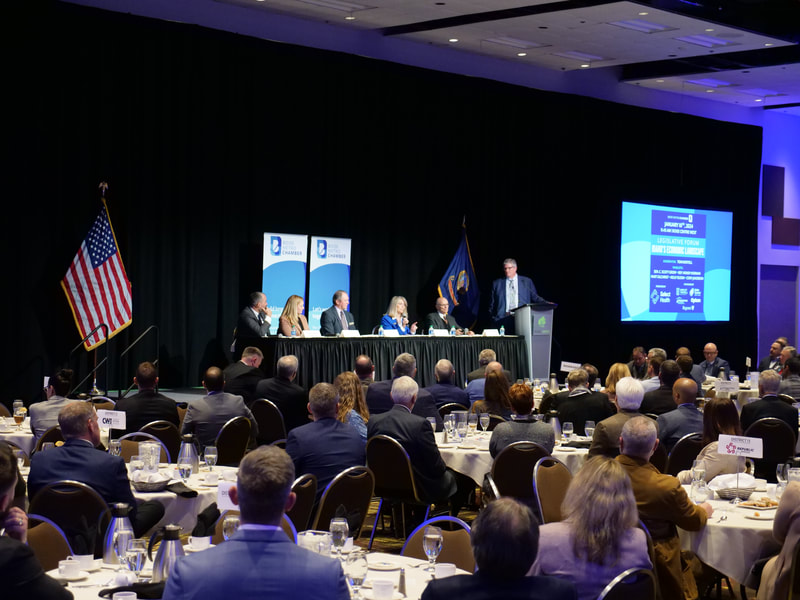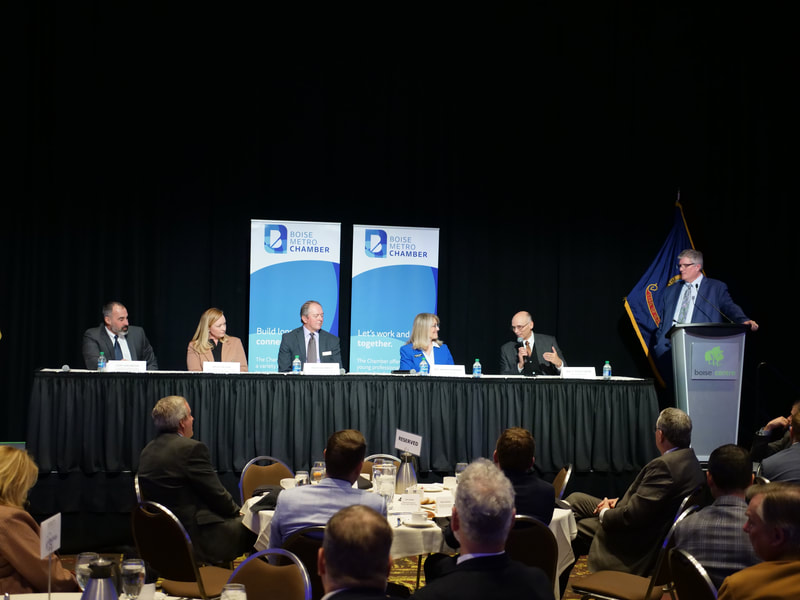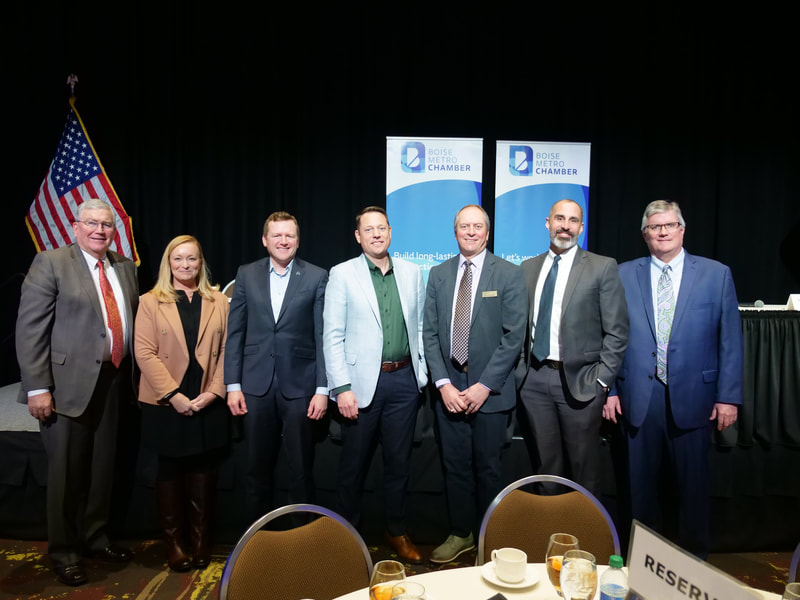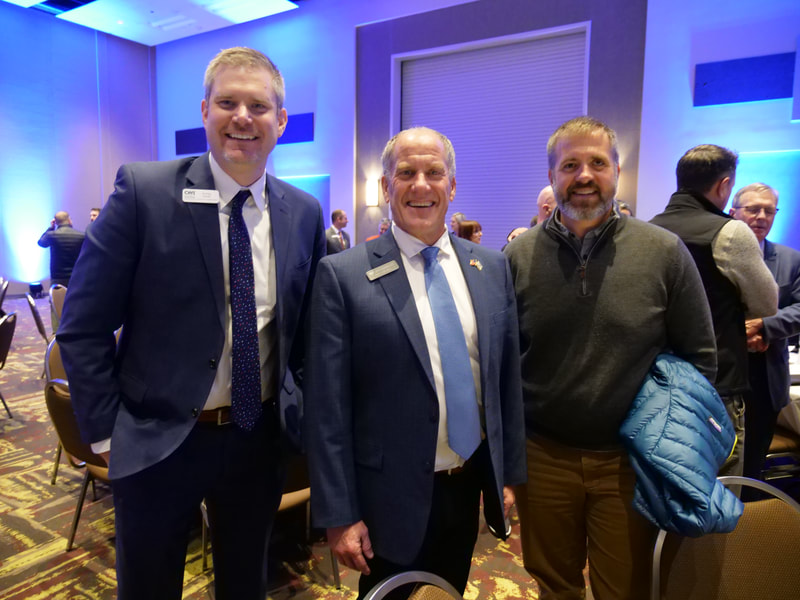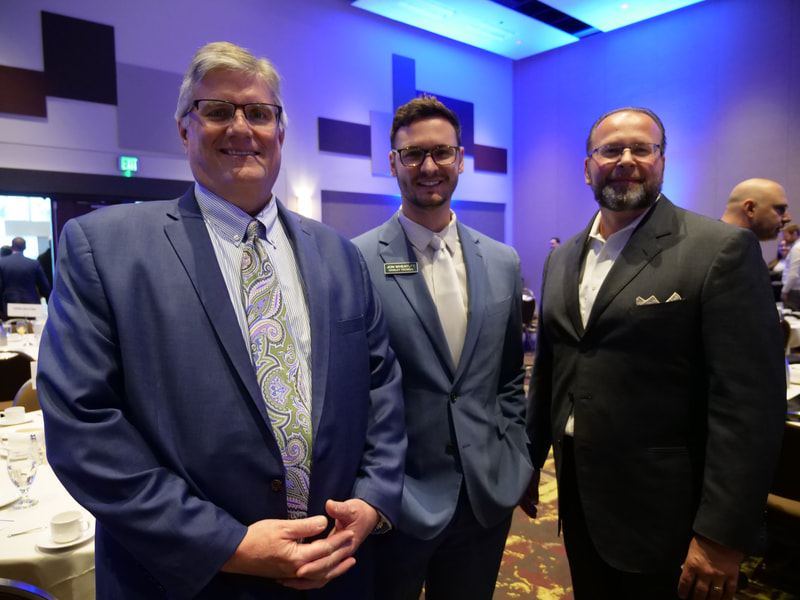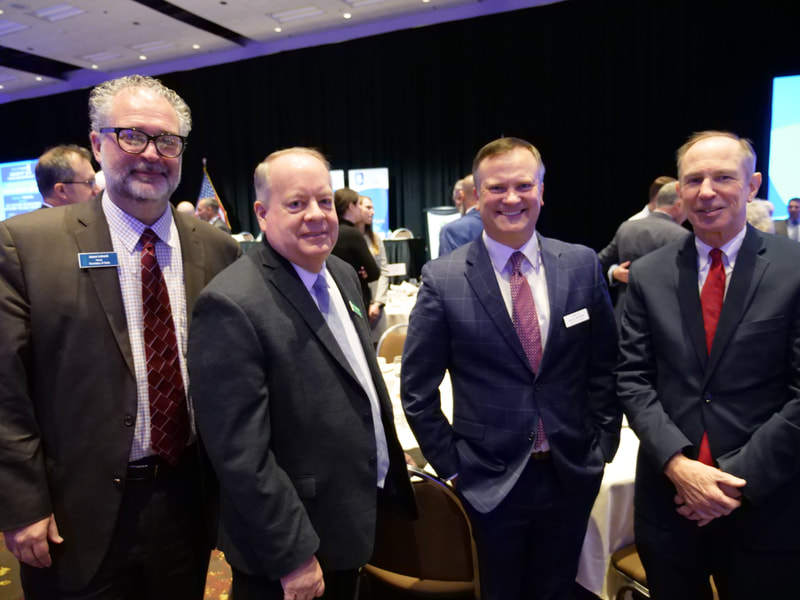|
Idaho Legislators gathered with state and local business leaders at the Boise Centre on Wednesday, January 10, during the Boise Metro Chamber's 2024 Legislative Forum. The event, presented by Select Health, opened with the Pledge of Allegiance led by Penelope Lehosit, Ms. Idaho Elementary America 2024. Governor Brad Little took the stage thereafter to share points from his State of the State address held earlier in the week. He discussed the consequences of Idaho's growth and his measures to keep pace with infrastructure. He plans to invest $2 billion over the next decade to assist Idaho's school districts with repairing dilapidated buildings - including one school he witnessed that had sewage seeping beneath the cafeteria. The Governor closed his remarks by joking that he needed to figure out what to expect from the Chamber's new President and CEO, Bobbi-Jo Meuleman, who previously served as his Deputy Chief of Staff for four years. The panel, moderated by Hawley Troxell's Co-Managing Partner, Thomas J. Mortell, featured five experts representing a cross-section of Idaho's Economic Landscape, the forum's theme.
Mortell masterfully facilitated the discussion while injecting humor throughout to ease the seriousness of the topics. He asked the panelists how interest rates have impacted Idaho's economy, what types of projects are slated for 2025, about Idaho's tourism health, and their thoughts on our state's growth. Jakobson shared an observation that "Those with solid balance sheets and substantial war chest reserves are prevailing during this time with higher interest rates. Interest rates used to carry the day, but a slowdown may be coming in 2024. We're cautiously optimistic that the fed will provide a soft landing." Olson concurred with Jakobson that she's also identified a trend of businesses dipping into their cash reserves but revealed that it hasn't slowed things down. "I love facts and data. We can see how long equipment is used on an hourly basis, and that trend is going up across the state. There was a dip during COVID, but it's back up. The seasonality factor has not even been an issue in the last few years." She added, "December is always an indicator of how we are doing, and it was a very, very big December. There was a large volume of machines delivered this year, especially locally, due to the big projects like Micron and Meta. I am very optimistic." Gilchrist reported on the health of tourism, saying, "Tourism is Idaho's third-largest industry, and bookings are already ahead by 23%. Things are good, and we're excited about slow, steady growth. To quote Clark Krause of BVEP, 'The economic forefront is looking at a better year. It's 2023 plus Micron, plus Meta.'" When prompted to share an opinion regarding how growth is impacting the Treasure Valley's economy and how we can manage it, Gilchrist cautioned, "We must be smart to avoid sprawl and make sure transportation is also growing." Olson added, "Growth equals opportunity. The two biggest challenges are keeping pace with 1: Transportation and 2: Skilled labor, which is the biggest leading factor driving to the finish line." Jakobson cautioned, "We need to be prudent about growth. How it can affect our businesses, state, and community must be understood. Growth can be harmful if it happens too quickly. We must manage it thoughtfully." Representative Horman brought the conversation to a personal level when she disclosed that she wears a widow's mite necklace during the legislative session. "It helps remind me that not all Idahoans have the luxury to choose between wants and needs. We must manage growth to protect our citizens who struggle daily for groceries and gas. We must set policies that make them successful, too." "The state doesn't tax property; it's managed at the local level, but we came to feel we needed to do something to help," Senator Grow reminded the audience. "Where needs are is where we address issues with the people's money to do what's best for the state and taxpayers," he said in referring to the three bills he helped present in January of 2023 that aimed to reduce Idaho's property taxes. The discussion concluded when Mortell asked each panelist to predict Idaho's 2025 economy with one word. Senator Grow said, "Concerned." Representative Horman stated, "Uncertain." Gilchrist chose "Resilient." Olson opted for "Healthy." Jakobson projected, "Similar." Chamber members can stay up-to-date regarding the economy and bills moving through the legislature this year by tuning in to our bi-weekly episodes of Legislative Update. The six-part, virtual series features host Tori Thomas, Boise Metro Chamber Community and Government Affairs Manager, speaking with legislators and other experts to discuss, debate, and clarify timely complexities, issues, and challenges faced by the State of Idaho during the 2024 session.
0 Comments
2021 Legislative Leaders Forum - Untapped Potential: The Economic Impact of Quality Childcare1/11/2021 In 2019, the Idaho Association of Commerce and Industry (IACI) and the Idaho Association for the Education of Young Children partnered with the U.S. Chamber Foundation to better understand the unique needs of Idaho’s working parents and examine the current childcare landscape. Join our presenters, Alex LaBeau, President of IACI, and Beth Oppenheimer, Executive Director of IAEYC, to learn more about this fundamentally challenging problem that many families face. |
CATEGORIES
All
ARCHIVES
June 2024
UPDATES |
|
1101 W. Front St., Suite 100
Boise, Idaho 83702 Phone: (208) 472-5200 Website: boisechamber.org Email: [email protected] |
Boise Chamber Hours:
Monday 8AM–4:30PM Tuesday 8AM–4:30PM Wednesday 8AM–4:30PM Thursday 8AM–4:30PM Friday 8AM–3:00PM Closed Weekends |
All content on this website is copyright © The Boise Metro Chamber of Commerce, 2024. All rights reserved. View our Privacy Policy.

